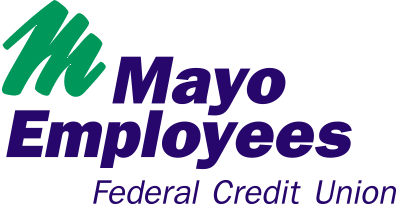
Make a financial checkup part of your new year routine.
Every new year it’s a great idea to review your financial situation and see if any adjustments need to be made. The most common reasons to consider making adjustments are changes in marital status, changes in income level, and changes in location and housing. However, you may also have new goals this coming year such as saving for college, or the purchase of a new home or vehicle. Here are some simple steps to help you reevaluate your financial situation in the new year.
Create new financial goals - The first place you should begin is to evaluate your previous years’ financial goals and make a new plan for the new year. Do you have more debt than you’re comfortable with? Have less money in your savings or retirement than you’d like, or you don’t know where all of your money is disappearing to each month? These are all questions to consider for yourself and your partner to help make a plan for your new financial goals.
Review your debt and credit reports - Collect your most recent monthly statements for debts you owe. This will include your mortgage, student loans, credit cards, auto loans, and any other debts you may have. Which debts are the most harmful to your financial health? Which debts are the easiest to pay off? Remember, the end goal with debt is to pay it off as quickly as possible, especially ahead of retirement. A simple place to start would be to look for opportunities to lower your interest rate and consolidate your loans. Here at MEFCU, we have lots of options to help you get out of debt faster and are always willing to assist you.
Another item to check during this time is your credit report. We recommend using annualcreditreport.com. Once a year, you can get your credit report from TransUnion, Equifax, and Experian all completely free. Reviewing your credit report each year helps understand how your credit score is trending over time, and also helps you monitor for potential fraud or identity theft.
Create/review budgets - Following a review of your debt and credit reports, it’s best to create a written budget next. This can be done through a simple spreadsheet or an app on your phone. Many financial wellness counselors recommend using a “zero-based” budget, or a budget system that simply assigns every single dollar you have a specific purpose. Begin with how much money you take home each month, then subtract each necessity such as rent/mortgage, food, and electricity, minimum monthly debt payments and other regular expenses. With the money that remains, you may choose to dedicate some of that money to entertainment, or pay down more of your debt by living more simply. If you live on inconsistent income, learn more about how to budget in this situation.
Save more - Another important aspect of an annual financial checkup is to assess your emergency savings. You may have a decent amount saved, but is that amount still ideal for where you’re at in life currently? Moving to a more expensive area, getting married, and having children are all typical reasons to increase the amount you need to have saved in case of an emergency. The easiest way to save more money is to dedicate a section in your budget that always puts away a sum of money each month into savings.
Review retirement and insurance numbers - Retirement, investing, and insurance coverage are often overlooked aspects of an annual financial checkup. Investing in your future is something you can never start too early and insurance may need to be changed from year to year. Many people don’t invest or invest enough because retirement seems too far away or feels like such a daunting task. Investing doesn’t need to be intimidating! The easiest way to begin investing is to see if your employer matches any contributions you might make to a 401(k) or 403(b). If they do, take full advantage of that opportunity, it’s free money! For people who are already investing, double-check that you are meeting your employers’ match. There are a number of other areas you can invest in for your future. If you have any questions get in touch with one of our team members today!
We can help - Give us a call at 1-800-535-2129 or stop by one of our offices if you need further assistance with your financial goals, help reviewing debt and credit reports, or creating a budget.
